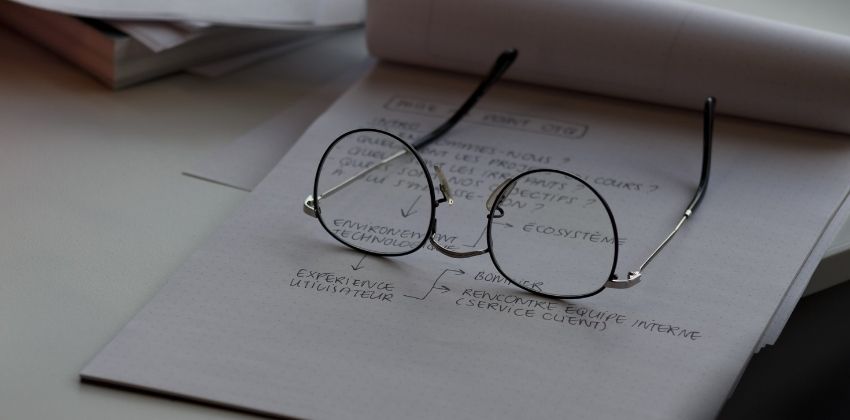A Complete Guide on How to Write a Statement of Purpose

The statement of Purpose is a short admission essay and an essential component of your university application. Often, the importance of your personal statement is underrated. An excellent written Statement of Purpose is an exceptional chance to present personal insights and represent yourself beyond the dry numbers of your CGPA, GRE, IELTS, etc.
Remember, a well-rounded Statement of Purpose can get an average profile student into a top school, and a terribly written Statement of Purpose can get a solid applicant rejected from an average school.
Regardless of the strength of your profile, you should invest significant time and effort into crafting a Perfect Statement of Purpose, since nowhere else, in the application, have you the chance to demonstrate your personality, motivation, maturity, interest, enthusiasm, diligence, and commitment. Your letter must be genuine and should be reflective of you.
Most faculty on the selection committee are, unfortunately, not going to work hard to find reasons to accept you. Well, I am sure you are thinking, "So, how do I write such a Statement of Purpose?"
Before we start exploring 'How to write a Statement of Purpose', let us explain the difference between not saying enough and saying too much in your personal statement.
If you don’t say enough, it means you will not be helping reviewers understand you, by highlighting your strongest and most relevant points, especially if they are not covered elsewhere in your application. On the other hand, if you say too much there’s a possibility your shortcomings could take center stage, you could sound conceited, your graduate school application could be misinterpreted and/or you could put the reviewers to sleep.
Though some say that you must not mention your shortcomings, such as failing a course or a lower mark, we disagree. You can explain it cautiously and consciously, yet you must not overdo it. You may present yourself favorably, but you must remain honest. Never promote yourself beyond reasonable reality.
Please note that we use the terms 'Statement of Purpose (SOP)', 'personal statement', 'motivation letter', 'letter of motivation', 'application essay' and 'objectives of graduate studies' interchangeably.

How to Write a Statement of Purpose - Three Parts You Must Follow:
So, soon after you started writing your first draft, you realized it isn’t that good. Don’t you want your Statement of Purpose to sound authentic, brilliant and original? No worries! Follow the three steps below on writing your application essay.
1. A Great Introduction:
A great introduction is a must for writing your application essay since its purpose is it to interest the readers in learning more about you. Start with a story because stories connect people. Statements do not.
So, your introduction may look like this in the first draft:
"I am applying to the Master of Literature program at the University of Neverland because I believe my writing will blossom at your program. I believe that it is a place where I will be challenged and can hone my writing skills."
Well. You are happy that you wrote an excellent introduction . Guess what? It is total crap because it is direct, obvious, extraneous and boring . Why?
The admission committee knows that your writing will “blossom” due to their rigorous curriculum and, of course, the courses will be challenging.
It doesn’t catch anyone's attention.
What if you start like this?:
“When I was eleven, my great-aunt Gretchen passed away and left me something that changed my life: a library of about five thousand books. Some of my favourite days were spent reading and exploring those books. Since then, I have yearned to become a writer.”
Do you see the difference? This introduction is direct, tells about your passion and catches attention.
2. Well Reasoning about You
Just after the introduction, write the body of the application essay on who you are. The body of your application essay varies from program to program. For example, if you are applying to a course-based program, this should be different from applying for a thesis-based program.
As most thesis-based programs require you to secure the support of a faculty member before applying, including your thesis proposal in it.
Try to be honest, clear, and concise about yourself when you write your application essay. One thing to remember that you must SHOW, not tell them. In this essay, mention how your background makes you the best candidate for the program. For example, you may want to include these question answers in your essay:
What courses have you taken?
What activities have you taken out of interest in the particular field?
What experiences do you have?
Why are you a good fit?
Why are you applying to this school? What specific thing attracts you to apply to this school?
How has your work experience, previous studies related to your interest in the subject?
What are your long-term plans? And How can this program at that university help you achieve that?
If you did poorly in a few courses, it is entirely okay to dedicate a few lines explaining the reasons. But don’t extend it to a paragraph.
3. Write a Strong Conclusion
The conclusion of your personal statement should be well constructed and must only contain critical highlights of your personal statement. It should be short, concise, and to the point that summarizes who you are, why you are applying, and why the program should take you.
Remember not to conclude your SOP unnecessarily, as it will hurt the strong impression already created. Read this example conclusion of a student who applied to Trent University for their Data Analytics program.
"This course-based program offers a curriculum on the theories and techniques of financial analysis. It provides a promising opportunity to connect with the entrepreneurial initiative through Trent’s research and innovation park. The coursework in mathematical finance, portfolio and risk management, financial management, and financial econometrics will lay a strong foundation as a financial analyst and prepare me to successfully establish my startup in India. Given my previous experience in economics, data analysis, technology, and entrepreneurial activities, I am confident that I will succeed in this prestigious program and will bring a unique perspective to the classroom. I very much hope that you will consider my deep enthusiasm for working in this sector and accept me in the financial analytics program starting from the Fall-2021 at Trent University."
How to write a statement of purpose - Three Important Tips to keep in Mind
The admission committee read hundreds of applications during each admission term. Honestly, they don’t get to read many interesting statements of purpose. Make your SOP interesting by applying these three essential tips on how to write a statement of purpose.
1. Quantify your Story
Support your story with your activities that are measurable. Don’t just say that you are in love with this subject. Show them what makes you fall in love with this subject? What works have to be put into that show your genuine interest? Why does this subject complete you? Why do you want to take this as your career?
Graduate schools want to find more about you as an applicant, and SOP is the way to help them get to know you personally.
So, you wrote:
"Due to my passion for science and technology, I started teaching street kids math and science when I was a university student at the University of Kakun."
But, what if you wrote something like:
“As a Mathematics student at the University of Kakun, I volunteered to teach algebra, geometry, and arithmetic at a local NGO that works with unprivileged high school students two days every week. My little contribution of 8 months seems to make a significant contribution to improving their mathematics skills. I am glad to help 20 students who did very well in their SATs and were first to attend college in their families”.
See how this story better helps the readers to understand your passion and can measure your contribution. Isn’t it way better than saying, “I am passionate in …...”
2. Use Formal, Conversational Style
There are two rigid styles to follow when writing your statement of Purpose: formal and friendly. If you follow the first style, it will be rigid and boring, but it will feel that you are writing to your friend if you follow the latter. So what to do?
Well, combine the two writing styles. A formal conversational essay will sound friendly and welcoming. Remember, combining these two styles will help you better connect with your readers, and they will like you from the very beginning.
3. Make it an Easy Read
Your application essay must be easy to read. Avoid jargon terms and cliché words. Ensure to add transitional words such as moreover, however, in addition, for example, besides, to ensure a smooth idea flow from one paragraph to another.
Format to Maintain When Writing Your Statement of Purpose (SOP)
All the hard work you have invested in achieving your dream may go in vain if you don’t format your application essay properly. Many students fall out of luck due to failure to maintain standard guidelines in their Statement of Purpose. As a rule of thumb, your scholarship essay should have:
1” margin in the top, right, bottom, and left of the page.
Double spacing throughout your essay.
The header on the page
The page number should be on the top right corner
Acceptable fonts Times New Roman or Courier New (Font size: 12px)
Reference and citation if you have used any.
How to Write Statement of Purpose - Technical Considerations to Focus:
When writing your letter of motivation or statement of purpose, make sure to include all the technical aspects mentioned below. Remember, a remarkable statement of Purpose is concise, compelling, easy to read, and communicate with its readers’.
Make effective use of a single page:
Short SOP can indicate that you had little to say or did not take your time to write it carefully.
A very long SOP can mean it is fluffily verbose, and homework hasn’t been done before writing it.
Leave common discussions off your SOP. It is not a place to talk about politics or religion.
Ensure clarity when writing your statement. Show your ability to think and express your ideas effectively. It will make the reader interested in “You” till the end of your motivation letter.
Spelling and grammatical errors. Just ensure no spelling mistakes in your motivational letter. You can use Grammarly or similar tools on the internet for free.
Yes, we all know writing a stellar statement of Purpose is extremely difficult. Hold on, patience! Believe that you will be able to write it. Don’t just get overwhelmed and bogged down on the process.
How to Write Statement of Purpose - Complete Checklist:
Well, you are near the end of this article. It's time to summarize what you have read so far. You may be thinking - What is the checklist on how to write Statement of Purpose? Follow this checklist to ensure a stellar statement of purpose or SOP. Make sure to include all the answers or points mentioned below in your motivation letter.
A hook that demonstrates your passion for this field
Smooth transition to your background in your field
Description of your academic background
Specific courses that you have taken in your school
Relevant experience that you have gained in your field, such as writing a research paper, working in the industry, etc.
Your extracurricular activities related to your field
Publications, conference attendance, or professional experience in your field
Explanation on why this specific school is best for you
Mention the works of one or two professors that you want to work with. Cite specific examples of their work in a concise yet explanatory way.
Specific features or opportunities in the department or program that attracts you.
Get advice from a mentor - the best would be any faculty member you have worked with and knows very well.
Proofread your motivation letter or SOP 1 time, two times, three times…..until you are happy with it. Ask yourself: If I were on the admission committee, will I choose myself for the program?
Do you know what the admission committee is trying to find out when they read your Statement of Purpose?
The admission committee wants to find the following when they read your motivation letter.
Passionately interested in the field.
Intelligent.
Well-prepared academically and personally.
Capable of taking on the challenges of grad school.
Able to have a rapport with professors and fellow grad students — in other words, collegial.
Capable of finishing the graduate degree in a timely fashion.
A potential star in your future career.
So while preparing your draft ask yourself - Will the admission committee find the above-mentioned points?
How long should a statement of Purpose be?
The length of your statement of Purpose varies from program to program. Some programs will specify a specific word count, while others won’t have any word guidelines. If there are no guidelines, it is ideal for writing your statement of Purpose within 750 -1000 words at best.
A general rule of thumb should be at least 1.5 -2 pages long. If the statement is too short or too long, then understand that this version of your letter isn’t the last one.
What is the difference between a statement of purpose (SOP), a Letter of Intent, and a Personal Statement?
All of these three are similar in content but are slightly different. According to Lincoln Memorial University:
Letter of Interest:
A letter of interest is like a cover letter that is addressed to the decision-maker. Its goal is to demonstrate your interest in applying, highlight your experience, and why you'd be an excellent fit for the program.
Graduate Personal Statement:
A Graduate personal statement intends to show who you are as a person, your academic and personal goals and why you fit in the program. Put this way - It shows what you want to study at this program and why you want to study.
Statement of Purpose:
A statement of purpose focuses specifically on your reasons for applying to this program and what specific achievement and experience make you a good candidate for this program.
We wish you all the best in writing the best SOP possible.
Similar Posts
How do you email a professor about funding?
How to Email a Professor About Research Opportunities
Avoid Getting Into A Fake University/College In Canada
How To Get Cheap Flights For Students
How to accomplish what you want - S.M.A.R.T. Goals for Students
Fake Friend? Learn the types of the fake friends
Graduate Admission Committee- What do they look for in an applicant?
Writing a Scholarship Essay That Indeed Works!
Everything On How To Study Abroad: Higher Education 101
Have a wonderful topic in mind?
Email us at contact@skipissues.com





